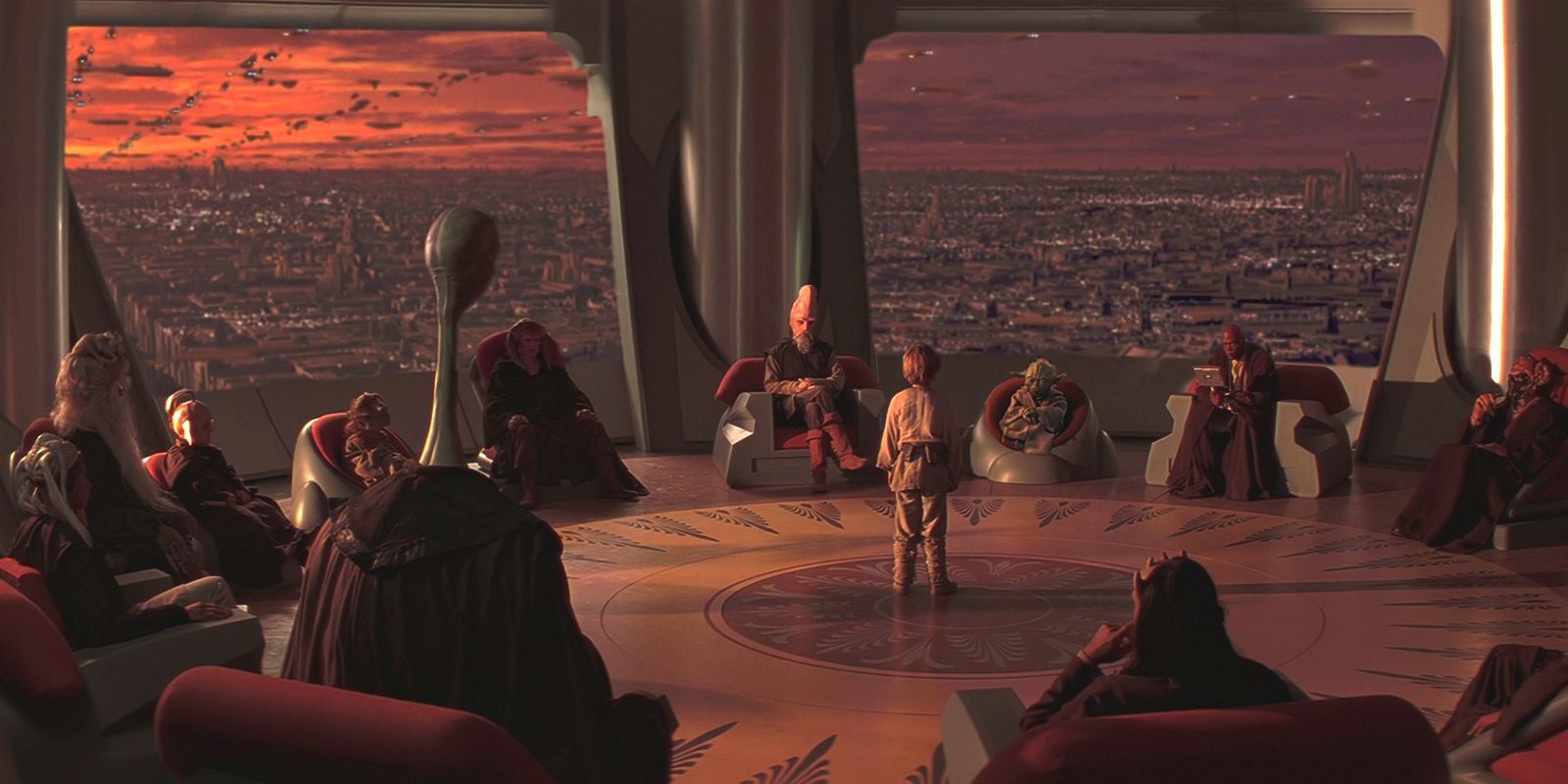Anakin Skywalker's appointment to the Jedi Council in Star Wars: Episode III - Revenge of the Sith was a point of great contention, primarily because it deviated from the established way of choosing a new councilmember. The Jedi Order had existed for millennia by the time of the Clone Wars, training its followers in the ways of the light side of the Force for the betterment of all lifeforms. Spread far and wide across the galaxy, these adherents were led by a central Jedi High Council.
There were actually four main councils that operated out of the Jedi Temple on Coruscant. The more specialized three were the Council of First Knowledge, the Council of Reconciliation, and the Council of Reassignment. The only one that appears in the Star Wars films, however, is the Jedi High Council, which was made up of twelve esteemed Jedi Masters chosen to lead the whole of the Jedi Order.
Every Upcoming Star Wars Movie & Release Date
To be inducted into the Jedi High Council, one needed to be a Jedi Master nominated by the sitting members of the Council. A vote of confirmation among the twelve generally needed to be unanimous, although exceptions could seemingly be made, as when Qui-Gon Jinn's nomination went through in spite of Yoda's reservations. There were typically no outside factors in the selection process, but the High Council's independence from politics was more practical than absolute, and they were technically beholden to the Galactic Senate. This allowed Supreme Chancellor Palpatine to install Anakin Skywalker as his representative near the end of the Clone Wars, albeit only because the members of the Council had ulterior motives and what's more refused to bestow upon him the rank of Jedi Master.
In formerly-canon Legends material, there were more details on the High Council's routine appointment of permanent, long-term, and short-term members, so as to account for both experience and new ideas, but this concept has yet to be reintroduced in the Disney canon. As it stands in Revenge of the Sith, the High Council is made to seem very insular and conservative, even with the recent addition of a number of relative young Jedi, including Obi-Wan Kenobi. Anakin's frustrations, while largely personal, are exacerbated by this, as are the disillusioned and ultimately seditious sentiments of Barriss Offee in The Clone Wars.
The corruption of the Galactic Senate is obvious in Revenge of the Sith, as it is literally being led by a Sith Lord. However, there is an argument to be made that the Jedi High Council, especially when its admissions criteria and frequency were considered, was a questionable locus of power in its own right. This comparison is not dwelt on in the film, but in a way, it serves to support the "from a certain point of view" argument about moral relativism recurs occasionally throughout all Star Wars movies.


